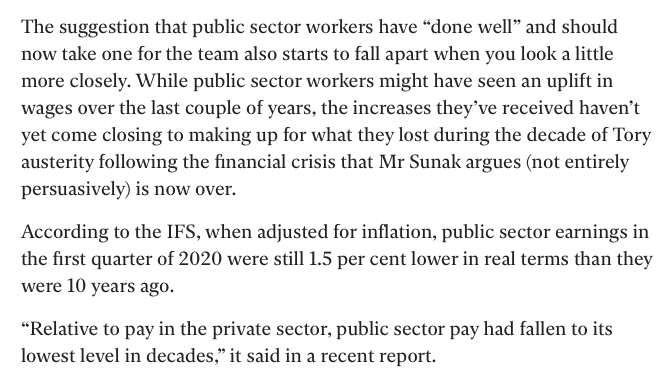
Have tweeted this already but the fact that the pandemic has utterly slammed young people's prospects (pretty much exclusively) demands significantly more attention. 



This is partly because they tend to work in the sectors that have been worst hit (all this via HMRC PAYE, via ONS) 



Also an element of last in, first out. Also, as @CPSThinkTank warned, raising minimum wages - and therefore the cost of employment - during a youth employment crisis was a really bad idea cps.org.uk/research/the-c…
But given the scarring effects of recessions/youth unemployment, this is a problem that urgently needs attention - not least because everything in British politics is already set up to reward the elderly at the expense of the young (see: the planning system)
(This thread brought to you by my personal disgruntlement that this data was getting less attention on my timeline than a nice tweet about split infinitives)
(And yes, obviously we have all been suffering in many different ways, not least the people who have literally died. But in terms of the employment market, it's very clearly the young who are losing out.)
(One clarification: the NLW rise/extension hasn't actually come in yet. Was trying to say that the decision in Nov to increase it in April was a bad one. Apologies.)
• • •
Missing some Tweet in this thread? You can try to
force a refresh





